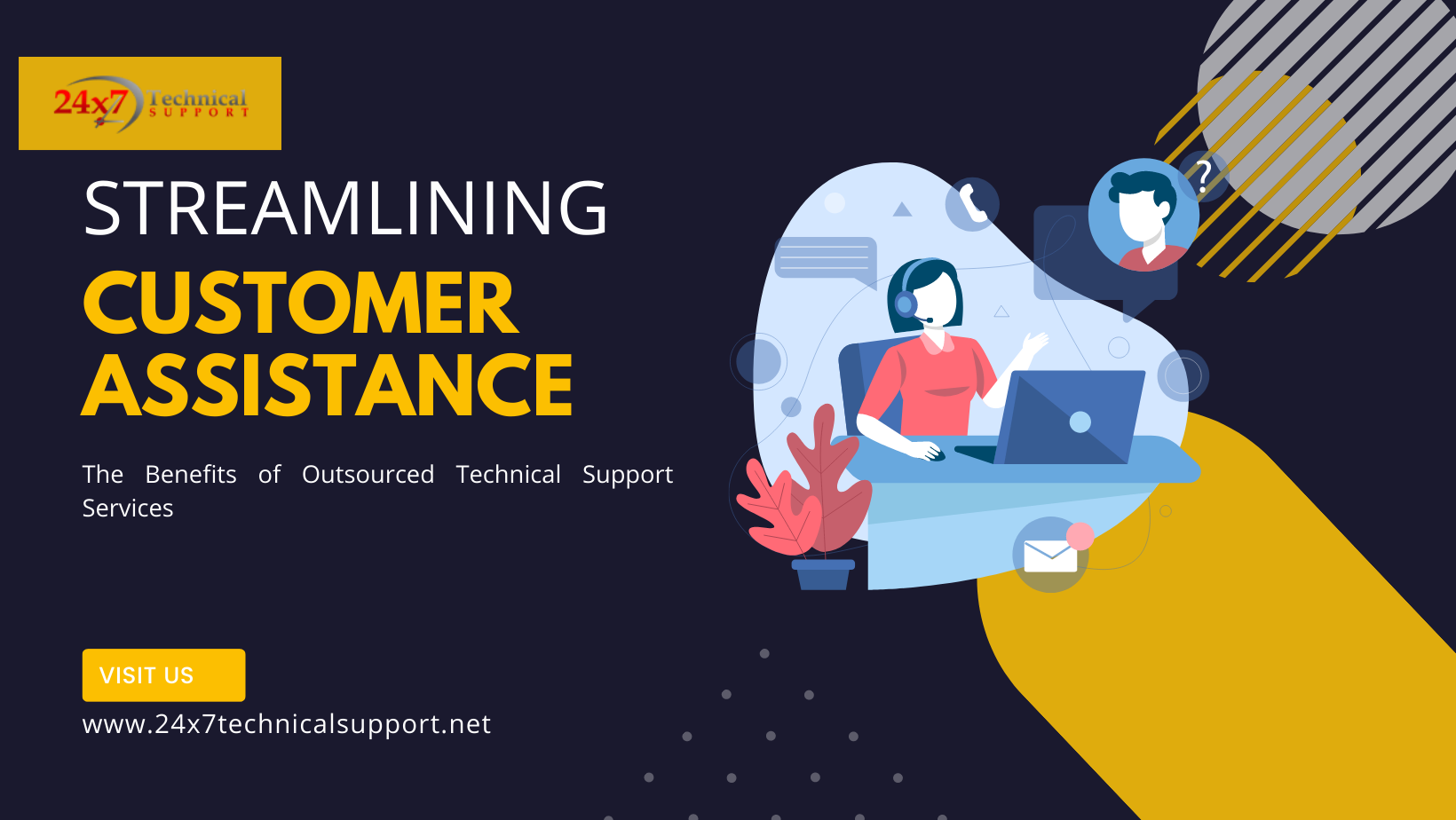
Outsourced Technical Support Services: Streamlining Customer Assistance
Technical support plays a crucial role in ensuring smooth operations for businesses and providing excellent customer experiences. In today’s fast-paced digital landscape, many companies opt for outsourced technical support services to meet the growing demands of their customers. This article explores the benefits and considerations of outsourcing technical support, highlighting how it can streamline customer assistance and enhance overall business performance.
Introduction
In the digital era, businesses face growing customer expectations regarding technical assistance and prompt issue resolution. To meet these demands effectively, many companies are turning to outsourced technical support services. Outsourcing enables organizations to leverage specialized expertise, reduce costs, and focus on core business functions. This article explores the advantages of outsourced technical support and provides insights into selecting a reliable service provider.

Understanding Outsourced Technical Support
Outsourced technical support involves partnering with a specialized service provider to handle customer queries, troubleshoot technical issues, and provide timely solutions. These service providers typically operate from remote locations and have dedicated teams of skilled professionals who are trained in specific technologies or products. By outsourcing technical support, companies can ensure 24/7 availability, improve response times, and enhance customer satisfaction.
Advantages of Outsourcing Technical Support Services
1 Cost Savings
Outsourcing technical support can lead to significant cost savings for businesses. Instead of investing in infrastructure, hiring, and training support staff, and managing ongoing operations, companies can opt for a cost-effective outsourced solution. Service providers often have established systems and processes, enabling them to deliver support services efficiently at a lower cost.
2 Access to Expertise
Technical support service providers specialize in various domains and technologies. By outsourcing, companies gain access to a diverse pool of skilled professionals with expertise in different areas. These experts stay updated with the latest industry trends and possess in-depth knowledge to resolve complex technical issues effectively.
3 Scalability and Flexibility
Outsourced technical support services offer scalability and flexibility to businesses. As customer demands fluctuate, service providers can quickly adjust their resources to handle increased call volumes or support requests. This scalability ensures uninterrupted customer assistance during peak periods or business expansion phases.
4 Focus on Core Competencies
By outsourcing technical support, companies can focus on their core competencies. Instead of dividing attention between customer assistance and other critical functions, businesses can dedicate more time and resources to product development, marketing, and strategic planning. Outsourcing allows companies to streamline their operations and maximize overall efficiency.

Selecting an Outsourced Technical Support Provider
When choosing an outsourced technical support provider, it is essential to consider several factors to ensure a successful partnership. Here are some key considerations:
1 Defining Your Requirements
Before selecting a provider, clearly define your technical support requirements. Identify the level of support needed, desired response times, and the specific technologies or products involved. This clarity helps in finding a provider with expertise aligned to your business needs.
2 Evaluating Provider Experience and Expertise
Assess the experience and expertise of potential service providers. Look for companies that have a proven track record in delivering technical support services, preferably in your industry. Client testimonials, case studies, and certifications can provide valuable insights into a provider’s capabilities.
3 Ensuring Effective Communication Channels
Smooth communication is vital for effective technical support. Ensure that the service provider offers multiple channels such as phone, email, chat, or a self-service portal. Additionally, evaluate the provider’s ability to integrate with your existing systems for seamless information exchange.
4 Assessing Service Level Agreements (SLAs)
Service Level Agreements (SLAs) define the performance metrics and expectations between you and the service provider. Review the SLAs carefully, paying attention to response times, resolution times, and availability guarantees. Clear SLAs ensure that the service provider meets your requirements and maintains service quality.
Best Practices for Successful Outsourced Technical Support
To derive maximum benefit from outsourced technical support, it is essential to follow these best practices:
1 Comprehensive Knowledge Base
Develop a comprehensive knowledge base that documents common issues, known solutions, and troubleshooting steps. This knowledge base serves as a valuable resource for support agents, enabling them to resolve customer queries quickly and efficiently.
2 Efficient Ticket Management
Implement an efficient ticket management system to track and prioritize support requests. This system ensures that all customer issues are addressed promptly, and tickets are appropriately routed to the most suitable support agents for faster resolutions.
3 Proactive Issue Resolution
Encourage proactive issue resolution by implementing monitoring tools and automated alerts. By identifying potential problems before customers encounter them, you can provide proactive solutions, improving customer satisfaction and reducing support volumes.
4 Continuous Improvement and Training
Regularly evaluate the performance of your outsourced technical support team and provide ongoing training to address skill gaps. Continuous improvement initiatives ensure that support agents stay updated with new technologies and best practices, enabling them to deliver exceptional customer experiences.
Conclusion
Outsourced technical support services provide businesses with numerous benefits, including cost savings, access to expertise, scalability, and the ability to focus on core competencies. By carefully selecting a reliable service provider and following best practices, companies can streamline customer assistance, enhance service quality, and boost customer satisfaction. However, it is crucial to address challenges such as language barriers, data security, and maintaining consistent service levels. By effectively overcoming these challenges, businesses can unlock the full potential of outsourced technical support and drive overall success.